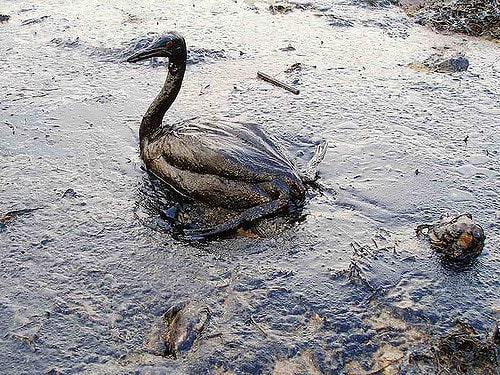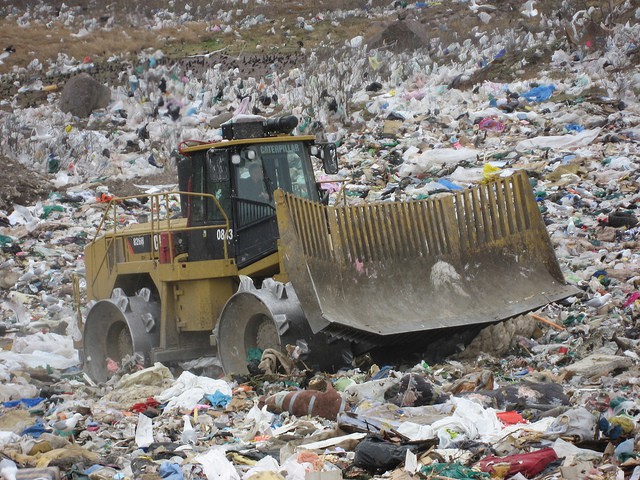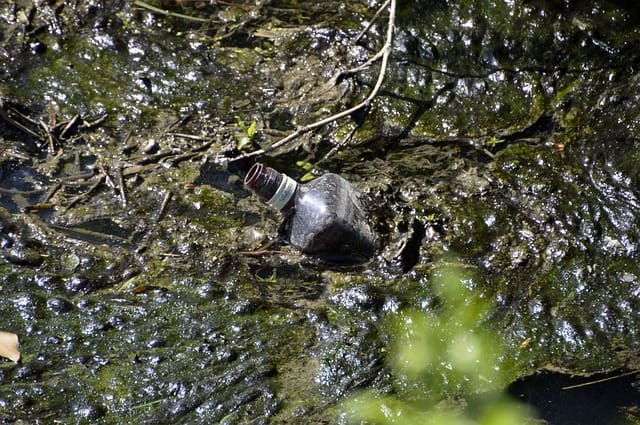What is Waste Oil and 10 Great Ways to Dispose Waste Oil Safely

Waste oil refers to any petroleum-based or synthetic oil that has become unsuitable for its original use as a result of contamination. The contamination could be caused by impurities or loss of its useful properties.
Waste oil can be contaminated by substances that may or may not be hazardous. Nonetheless, it is not safe to handle any contaminated oil because it is difficult to determine whether or not waste oil is hazardous if you don’t know what to look out for.
If waste oils are burned improperly, they will release toxins into the atmosphere and become harmful, unsustainable pollutants that are detrimental to our health. Therefore, once the usefulness of the oil has expired, it is imperative that you collect and dispose of it in a safe and environmentally friendly manner.
But what are the safe ways to dispose of waste oil?
In this article, we explore 10 best practices that you can employ when handling waste oil.
10 Great Ways to Dispose Waste Oil Safely
1. Always Use The Right Container
Proper disposal of waste oil starts with putting the oil in an appropriate container. If you simply want to dispose of a half-used quarts of motor oil that you don’t intend to use anymore, you can transport them in their original containers.
However, you have to ensure that the lids are tightly closed. You don’t want to leave a chance for any leakages. If you have just changed the oil in your machine, such as a lawnmower, put the oil in a rigid plastic container with tight-fitting lid. A one-gallon water jug would do a great job in this case.
Avoid using containers that previously contained paint, antifreeze, or chemicals, especially if you’re planning to recycle the waste oil into a new product. Be sure to use a funnel when transferring the oil to avoid to spilling it on the ground. Don’t forget to label the container.
2. Know What You Are Burning
It is imperative that you know the kind of oil you want to discard. If you are not sure of the substance that you want to burn, you could be exposing yourself to untold dangers.
While you can get rid of some waste oils with boilers and heaters, you’ll need to outsource disposal services for others. By understanding the substances that you are working with, you will be able to determine the best method of disposal.
3. Use Protective Gear
Whenever you are handling potentially hazardous or contaminated substances, it is imperative that you take the necessary precautions. You need to use appropriate personal protective equipment to avoid injuries or other health risks.
Moreover, you should avoid eating, drinking, and handling other items that can transfer substances that are hazardous to your health.
4. Store Waste Oil Properly
It is important to store waste oil properly to facilitate controlled disposal. You can’t use ordinary fuel storage tanks to store waste oil.
You should invest in waste oil tanks, as they are a much safer option. Moreover, inappropriate storage compounds the risk for the presence of contaminants. These contaminants can lead to hazardous and uncontrollable results.
Always be sure that waste substances are properly sealed and stored in a cool, dry, and secluded environment.
5. Use the Right Heater for Burning Waste Oil
You can choose to burn waste oil yourself. This is a safe and cost-effective way to recycle waste oil and convert it into a new, useful product. However, it is important to use an efficient waste oil heater.
There are many companies out there that offer efficient and clean waste oil boilers, which are designed specifically for waste oil. These boilers are normally made from carbon steel, unlike ordinary boilers that are normally made from cast iron.
6. Uphold Proper Maintenance of Equipment
Proper disposal of waste oil normally boils down to maintenance. An equipment that is harder to clean is more likely to harbor contaminants that can be dangerous to you and the environment. If the equipment works at extremely high temperatures, the less likely it is to produce a residual product. However, this doesn’t mean that it won’t accumulate residues over time.
Moreover, cleaning coils and hard-to-reach areas can be a daunting task and is normally not an effective measure. Therefore, it is advisable to invest in equipment that is intelligently designed with proper cleaning mechanisms that will make maintenance easier and more convenient. Such mechanisms may include:
- Swing-open boiler door
- Sweep-away burner
- Ash removal port
7. Use Disposal Equipment for Its Intended Purpose
It is important to use disposal equipment according to the manufacturer’s guidelines. If you are not sure of how to safely operate a waste oil heater, some boilers are equipped with control systems that are geared to ensure that your waste oil disposal is simple and safe for both human and the environment.
8. Invest in EPA-approved Equipment
Many waste boilers can only burn a limited range of oils. This could be because they are unreliable or are of poor quality. However, the major reason why many waste oil heaters can only burn just a limited range of oils is that they are not EPA-approved.
Most EPA-approved heaters or boilers have the ability to burn a vast range of oils in a safe and effective way. This is a great way to dispose of waste oil without having to worry about toxic substances being released to the surrounding environment.
9. Disposing of Oil Filters
When you change your car’s motor oil, you will have to dispose of the old oil plus the oil filter. First, you’ll need to drain oil from the filter. To do this, place the filter in a clean, large bucket. Be sure the hole side is facing down. You can use any other appropriate container in place of the bucket.
Once you are done, put the filter in a leak-proof zip-style bag for transportation. Then, pour the oil in the bucket into a plastic jug with a firmly fitting lid. This bucket should be reserved for draining filters, so you don’t have to rinse the oil residue down a drain or on the ground.
10. Contact a Local Waste Oil Disposal Service
There are facilities and organizations that specialize in collecting and disposing of waste oil across the globe. If you do a quick online search, you are sure to find such facilities that serve your area and their respective prices. Then, choose the service that suits your waste oil disposal needs and budget.






